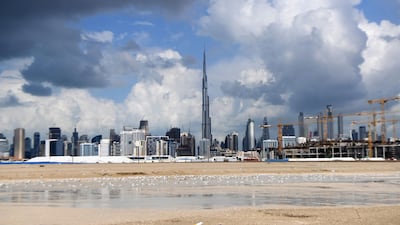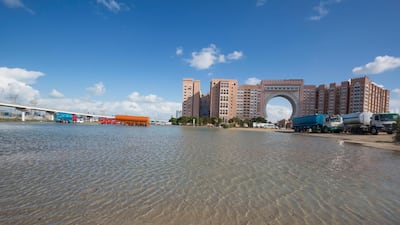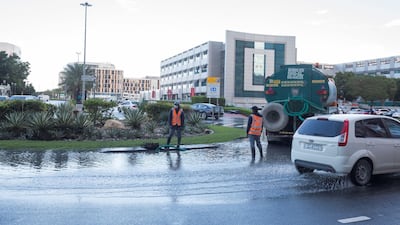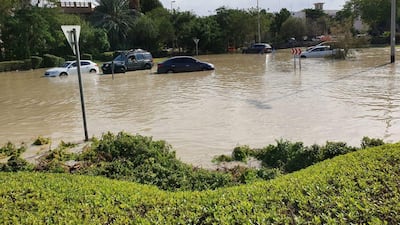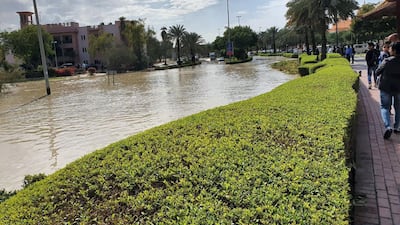The UAE is in the middle of a cold snap, with low temperatures of 2ºC forecast in the mountains of Ras Al Khaimah this week, and rain sweeping in from the west by Wednesday.
Cloudy conditions are expected until Friday, with rain forecast by the National Centre of Meteorology on Wednesday, Thursday and Friday, and noticeably cooler conditions across the Emirates, with lows of 14ºC forecast every day until Friday in Dubai and 15ºC in Abu Dhabi.
It follows a cold weekend, with temperatures in Jebel Jais dropping to 1.8ºC on Sunday, according to the NCM. The mercury rose slightly on Monday morning, with the UAE's lowest temperature of the day being 3.4ºC, recorded in the Raknah area of Al Ain at 7.15am.
Temperatures have dropped significantly since the turn of the year, NCM data shows. For comparison, the lowest temperature in the UAE on December 31 was 10.7ºC, in the vast desert region of Al Dhafra, in Abu Dhabi.
The chilly conditions and frost at the UAE’s tallest peak may be no surprise, but elsewhere in the Emirates there has also been a distinct feeling of winter in the air. Clear skies have coincided with temperatures dropping to 13ºC overnight in Al Ain, and 14ºC in Abu Dhabi and Dubai.
Daytime temperatures are set to remain at about 24ºC for much of the week across the country, but rain is likely to arrive from Wednesday.
Dubai and the Northern Emirates are most likely to be hit by rain showers as clouds form over coastal areas. Thursday is likely to bring a further chance of rain, with light to moderate winds from the north.
More rain is forecast on Friday, in northern and eastern areas of the country, with fog expected to drift in on Saturday morning.
Snow may be a rare sight in the UAE, but light flurries have been seen in the mountains of the north. In February 2017, Jebel Jais received a blanket of snow, with snow returning three years later in the winter of 2020.
The coldest temperature in the Emirates was recorded in January 2021, when it was a very icy minus 2ºC in Raknah.
Winter season arrives
The UAE typically experiences an increase in unsettled weather and a drop in temperatures during the winter, which typically begins in late December and continues until the middle of March.
The NCM recently shared its climate outlook January, in which it forecasts rain and says average temperatures will be in line with those recorded during the first month of the year.
The UAE is expected to receive about 11.5mm of rain during the month. The average temperature – taking into account day and evening forecasts – will be 18.3ºC.
While the country has experienced a chilly and relatively rainy start to the year, the unsettled start to 2025 pales in comparison to the extreme weather felt in January last year. A 10-hour rainstorm brought chaos to the roads on Saturday, January 11, causing long traffic jams and flooding.
Rain fell throughout Friday and the early hours of Saturday, leaving many roads waterlogged. Preliminary readings from Dubai showed that 150mm of rain had fallen every hour for two-and-a-half hours.
Another January deluge was recorded in 2023, with yellow and amber alerts issued as downpours caused flooding in some areas. On Sheikh Zayed Road in Dubai, floodwater covered parts of the 12-lane motorway, leading to long queues of traffic.











